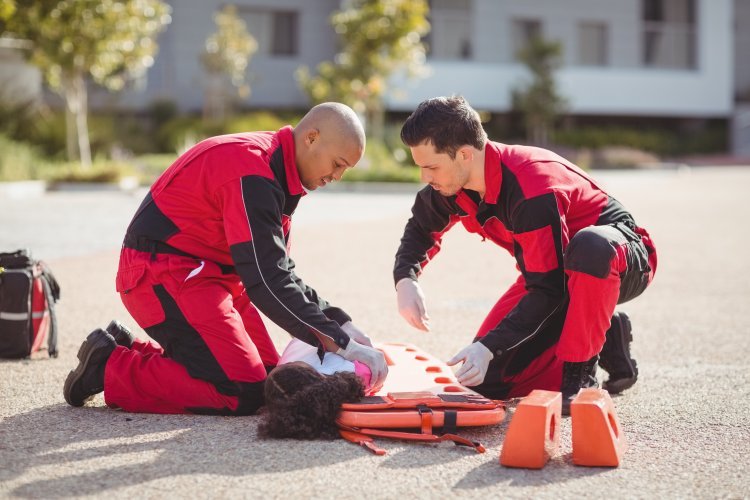What You Need to Know About Advanced Marine First Aid
Discover the importance of advanced marine first aid in ensuring safety at sea. Explore key techniques and preparation strategies crucial for handling emergencies, supported by insights from Fast Rescue.

In the realm of maritime safety, where the unpredictable nature of the sea can pose unique challenges, having advanced marine first aid skills is not just valuable but essential. Whether you're a seasoned sailor, a maritime professional, or simply someone who enjoys spending time on the water, understanding advanced marine first aid can make a significant difference in emergency situations.
This article explores the crucial aspects of advanced marine first aid, emphasizing its importance, key techniques, and preparation strategies, with insights drawn from Fast Rescue, a recognized leader in maritime safety training and equipment.
Why Advanced Marine First Aid Matters
Advanced marine first aid goes beyond basic first aid training by addressing the specific risks and conditions encountered in marine environments. Unlike land-based emergencies, incidents at sea can involve prolonged response times from professional medical help, harsh weather conditions, and limited resources. This makes the ability to provide immediate and effective first aid crucial for preventing escalation of injuries and potentially saving lives.
In marine environments, injuries such as cuts, burns, fractures, and hypothermia are common and require specialized treatment due to the unique circumstances of being on water. Fast Rescue emphasizes the need for advanced techniques that allow responders to stabilize patients until professional medical assistance can be reached, which could be hours or even days away in remote locations.
What Advanced Marine First Aid Involves
Advanced marine first aid training typically covers a range of skills tailored to maritime settings:
-
Trauma Management: Dealing with severe injuries like deep cuts, fractures from falls, or head injuries from boating accidents requires specific techniques that account for the challenges of treating patients on a moving vessel or in rough water conditions.
-
Hypothermia and Cold-Related Injuries: Exposure to cold water can lead to hypothermia, where the body loses heat faster than it can produce. Advanced training teaches methods for preventing, recognizing, and treating hypothermia effectively until evacuation or further medical care is possible.
-
Medical Emergencies: Conditions such as heart attacks, strokes, or severe allergic reactions can occur at sea. Advanced marine first aid equips responders with the skills to manage these emergencies using limited resources and in potentially adverse environmental conditions.
-
Maritime-Specific Equipment: Fast Rescue emphasizes the importance of knowing how to utilize maritime-specific first aid equipment such as marine first aid kits, life rafts, and emergency signaling devices. Training ensures responders can use these tools effectively to enhance patient care and safety.
-
Communication and Coordination: Effective communication is critical during maritime emergencies. Advanced training emphasizes clear communication protocols, coordination with emergency services, and the use of marine radio or satellite communication systems.
Where to Learn Advanced Marine First Aid
Fast Rescue, along with several other reputable organizations, offers specialized training in advanced marine first aid. These courses cater to different levels of proficiency and specific maritime environments, often including practical scenarios and simulations to prepare participants for real-life emergencies. Fast Rescue's commitment to excellence ensures that participants are trained according to international safety standards, enhancing their readiness to respond effectively during maritime emergencies.
When to Apply Advanced Marine First Aid
The application of advanced marine first aid is not limited to emergencies but can also include proactive measures to prevent injuries and promote safety on board. Regular drills, crew training sessions, and maintaining up-to-date medical kits are essential practices for preparedness. Being able to respond swiftly and effectively during an emergency can mitigate risks and potentially save lives in challenging maritime conditions.
How to Prepare for Advanced Marine First Aid Scenarios
Preparation is key to effective emergency response at sea:
-
Risk Assessment: Understanding the specific risks associated with your maritime activities helps in planning and preparing for emergencies.
-
Training and Certification: Regularly updating skills through certified training programs, such as those offered by Fast Rescue, ensures proficiency in advanced techniques and protocols.
-
Equipment Readiness: Inspecting and maintaining marine first aid kits, safety gear, and emergency equipment ensures they are fully functional when needed.
-
Emergency Response Plans: Developing and practicing emergency response plans tailored to your vessel and crew enhances readiness and coordination during crises.
Conclusion
Advanced marine first aid is more than a skill; it's a critical component of maritime safety and preparedness. Whether you're navigating coastal waters or crossing oceans, having the knowledge and ability to respond to medical emergencies effectively can make a profound difference. By understanding the specific challenges and techniques involved in advanced marine first aid, individuals and crews can enhance their safety margins and enjoy their maritime activities with greater peace of mind. Investing in training, staying prepared, and prioritizing safety ensures that everyone aboard can navigate the seas confidently, knowing they are equipped to handle whatever challenges may arise, with the expertise and support of organizations like Fast Rescue leading the way in maritime safety.
What's Your Reaction?










![Wireless Connectivity Software Market Size, Share | Statistics [2032]](https://handyclassified.com/uploads/images/202404/image_100x75_661f3be896033.jpg)


